选课中心NEW
7099人选课
SAT【0】元讲座
免费学
托福【0】元讲座
免费学
SAT模考网站HOT
39209人预约
托福备考练习HOT
39209人预约
SAT辅导课程NEW
免费报名
AP辅导课程NEW
立即报名
中学生托福课程NEW
立即报名
大学生托福课程NEW
立即报名
【定制】1v1
私人订制
【资料】考前冲刺
精
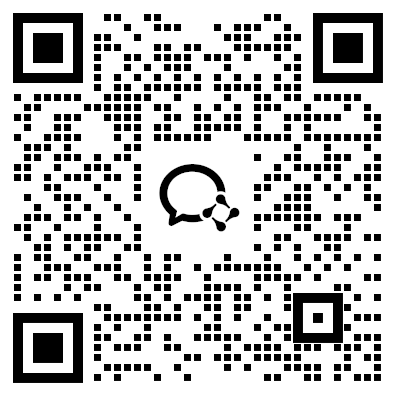
扫码添加助教
免费领取
备考资料大礼包

扫码关注公众号
新东方在线为大家精心整理了SAT阅读素材:Amos Bronson Alcott的相关内容,分享给大家,供大家参考,希望对大家有所帮助!
Amos Bronson Alcott (November 29, 1799 – March 4, 1888) was an American teacher, writer and philosopher who left a legacy of forward-thinking social ideas. His status as a well-publicized figure from the 1830s to the 1880s stemmed from his founding of two short-lived projects, an unconventional school and an utopian community known as "Fruitlands", as well as from his association with the philosophy of Transcendentalism and from the celebrity accruing to his daughter, Little Women author Louisa May Alcott.
Experimental educator
On September 22, 1834, Alcott opened a school of about 30 students, mostly from wealthy families.[28] It was named the Temple School because classes were held at the Masonic Temple on Tremont Street in Boston.[29] His assistant was Elizabeth Palmer Peabody, later replaced by Margaret Fuller. Mary Peabody Mann served as a French instructor for a time.[30] The school was briefly famous, and then infamous, because of his original methods. Before 1830, writing (except in higher education) equated to rote drills in the rules of grammar, spelling, vocabulary, penmanship and transcription of adult texts. However, in that decade, progressive reformers such as Alcott, influenced by Pestalozzi as well as Friedrich Fr?bel and Johann Friedrich Herbart, began to advocate writing about subjects from students' personal experiences. Reformers debated against beginning instruction with rules and were in favor of helping students learn to write by expressing the personal meaning of events within their own lives. Alcott's plan was to develop self-instruction on the basis of self-analysis, with an emphasis on conversation and questioning rather than lecturing and drill, which were prevalent in the U.S. classrooms of the time. Alongside writing and reading, he gave lessons in "spiritual culture", which included interpretation of the Gospels, and advocated object teaching in writing instruction.[citation needed] He even went so far as to decorate his schoolroom in the with visual elements he thought would inspire learning: paintings, books, comfortable furniture, and busts or portraits of Plato, Socrates, Jesus, and William Ellery Channing.[29]
In July 1835, Peabody published her account as an assistant to the Temple School as Record of a School: Exemplifying the General Principles of Spiritual Culture.[30] While working on a second book, Alcott and Peabody had a falling out and Conversations with Children on the Gospels was prepared with help from Peabody's sister Sophia,[31] published at the end of December 1836.[28] Alcott's methods were not well received; many found his conversations on the Gospels close to blasphemous. For example, he asked students to question if Biblical miracles were literal and suggested that all people are part of God.[32] In the Boston Daily Advertiser, Nathan Hale criticized Alcott's "flippant and off hand conversation" about serious topics from the Virgin birth of Jesus to circumcision.[33] Joseph T. Buckingham called Alcott "either insane or half-witted" and "an ignorant and presuming charlatan".[34]
The temple school was widely denounced in the press. Reverend James Freeman Clarke was one of Alcott's few supporters and defended him against the harsh response from Boston periodicals.[35] Alcott was rejected by most public opinion and, by the summer of 1837, he had only 11 students left and no assistant after Margaret Fuller moved to Providence, Rhode Island.[36] The controversy had caused many parents to remove their children and, as the school closed, Alcott became increasingly financially desperate. Remaining steadfast to his pedagogy, a forerunner of progressive and democratic schooling, he alienated parents in a later "parlor school" by admitting an African American child to the class, whom he then refused to expel in the face of protests.
Transcendentalism
Beginning in 1836, Alcott's membership in the Transcendental Club put him in such company as Ralph Waldo Emerson, Orestes Brownson and Theodore Parker.[37] He became a member with the Club's second meeting and hosted their third.[33] A biographer of Emerson described the group as "the occasional meetings of a changing body of liberal thinkers, agreeing in nothing but their liberality".[38] Frederick Henry Hedge wrote of the group's nature: "There was no club in the strict sense... only occasional meetings of like-minded men and women".[38] Alcott preferred the term "Symposium" for their group.[39]
In late April 1840 Alcott moved to the town of Concord[40] urged by Emerson. He rented a home for $50 a year within walking distance of Emerson's house; he named it Dove Cottage.[41] A supporter of Alcott's philosophies, Emerson offered to help with his writing, which proved a difficult task. After several revisions, for example, he deemed the essay "Psyche" (Alcott's account of how he educated his daughters) unpublishable.[42] Alcott also wrote a series patterned after the work of German writer Johann Wolfgang von Goethe which were eventually published in the Transcendentalists' journal, The Dial. Emerson wrote to Margaret Fuller, then editor, that they might "pass muster & even pass for just & great".[40] He was wrong. Alcott's so-called "Orphic Sayings" which were widely mocked for being silly and unintelligible; Fuller herself disliked them but did not want to hurt Alcott's feelings.[43] In the first issue, for example, he wrote:
Nature is quick with spirit. In eternal systole and diastole, the living tides course gladly along, incarnating organ and vessel in their mystic flow. Let her pulsations for a moment pause on their errands, and creation's self ebbs instantly into chaos and invisibility again. The visible world is the extremist wave of that spiritual flood, whose flux is life, whose reflux death, efflux thought, and conflux light. Organization is the confine of incarnation,—body the atomy of God.[44]
With financial support from Emerson,[45] Alcott left Concord on May 8, 1842, to a visit to England, leaving his brother Junius with his family.[46] He met two admirers, Charles Lane and Henry C. Wright.[47] The two men were leaders of Alcott House, an experimental school based on Alcott's methods from the Temple School located about ten miles outside of London.[45] The school's founder, James Pierpont Greaves, had only recently died but Alcott was invited to stay there for a week.[48] Alcott persuaded them to come come to the United States with him; Lane and his son moved into the Alcott house and helped with family chores.[49] Pursuaded in part by Lane's abolitionist views, Alcott took a stand against the John Tyler administration's plan to annex Texas as a slave territory and refused to pay his poll tax. Abby May wrote in her journal on January 17, 1843, "A day of some excitement, as Mr. Alcott refused to pay his town tax... After waiting some time to be committed [to jail], he was told it was paid by a friend. Thus we were spared the affliction of his absence and the triumph of suffering for his principles."[50] The annual poll tax was only $1.50.[51]
Utopia
Lane and Alcott collaborated on a major expansion of their educational theories into a Utopian society. Alcott, however, was still in debt and could not purchase the land needed for their planned community. In a letter, Lane wrote, "I do not see anyone to act the money part but myself."[52] In May 1843, he purchased a 90-acre (360,000 m2) farm in Harvard, Massachusetts.[53] They moved to the farm on June 1 and optimistically named it "Fruitlands" despite only ten old apple trees on the property.[53] In July, Alcott announced their plans in The Dial: "We have made an arrangement with the proprieter of an estate of about a hundred acres, which liberates this tract from human ownership".[53]
Their goal was to remove themselves from the economy as much as possible in order to live independently;[54] unlike a similar project named Brook Farm, the participants at Fruitlands avoided interaction with local communities.[55] Calling themselves a "consociate family", they agreed to follow a strict vegetarian diet and to till the land without the use of animal labor.[53] After some difficulty, they relented and allowed some cattle to be "enslaved".[56] They also banned coffee, tea, alcoholic drinks, milk, and warm bathwater.[57] They only ate "aspiring vegetables" — those which grew upward — and refused those that grew downward like potatoes. For clothing, they prohibited leather because animals were killed for it, as well as cotton, silk, and wool, because they were products of slave labor.[56] Alcott had high expectations but was often away when the community most needed him as he attempted to recruit more members.[58]
The experimental community was never successful, partly because most of the land was not arable.[59] Alcott lamented, "None of us were prepared to actualize practically the ideal life of which we dreamed. So we fell apart".[60] Its founders were often away as well; in the middle of harvesting, they left for a lecture tour through Providence, Rhode Island, New York City, and New Haven, Connecticut.[61] In its seven months, only 13 people joined, included the Alcotts and Lanes.[62] Other than Abby May and her daughters, only one other woman joined, Ann Page. One rumor suggests Page was asked to leave after eating a fish tail with a neighbor.[63] Lane believed Alcott had misled him into thinking enough people would join the enterprise and developed a strong dislike for the nuclear family. He quit the project and moved to a nearby Shaker family with his son.[64] After Lane's departure, Alcott fell into a depression and could not speak or eat for three days.[65] Abby May thought Lane purposely sabotaged her family. She wrote to her brother, "All Mr. Lane's efforts have been to disunite us. But Mr. Alcott's... paternal instincts were too strong for him."[66]
The members of the Alcott family were not happy with their Fruitlands experience. At one point, Abby May threatened that she and their daughters would move elsewhere, leaving Bronson behind.[67] Louisa May Alcott, who was ten years old at the time, later wrote of the experience in Transcendental Wild Oats (1873): "The band of brothers began by spading garden and field; but a few days of it lessened their ardor amazingly."[68]
In January 1844, Alcott moved his family to Still River, a village within Harvard but, by November, the family returned to Concord to live in a home they named "The Hillside",[69] later renamed "The Wayside" by Nathaniel Hawthorne).
Four years later, Alcott and the family moved to Boston. In March 1853, he was invited to teach fifteen students at Harvard Divinity School in an extracurricular, non-credit course.[70]
back to Concord after 1857, where he and his family lived in the Orchard House until 1877. While there, Alcott served as Superintendent to the Concord Public Schools in 1860–61.
以上就是新东方在线为大家总结的SAT阅读素材:Amos Bronson Alcott的相关内容,最后预祝大家在SAT考试中取得优异的成绩!
---本文节选自新东方在线论坛
SAT水平能力测试【0元免费测试】
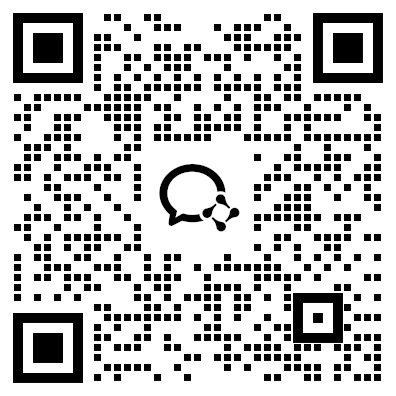
 资料下载
资料下载
【SAT】SAT官方指南题目合集10套
发布时间:2024-04-15添加新东方在线美本助教号
回复【美本资料】获取
SAT阅读+文法+数学专项题型练习册
发布时间:2024-05-31添加新东方在线美本助教号
回复【美本资料】获取
机考SAT-可汗练习题
发布时间:2024-02-29添加新东方在线美本助教号
回复【美本资料】获取
机考SAT-CB官方样题
发布时间:2024-02-29添加新东方在线美本助教号
回复【美本资料】获取
《学科留学百问 (AP-IB-A Level)》
发布时间:2023-02-22添加新东方在线美本助教号
回复【美本资料】获取
2024中国学生留学备考白皮书
发布时间:2023-02-22添加新东方在线美本助教号
回复【美本资料】获取
2023北美考试一本通高中篇
发布时间:2023-02-22添加新东方在线美本助教号
回复【美本资料】获取
新东方SAT阅读讲义
发布时间:2023-02-06添加新东方在线美本助教号
回复【美本资料】获取
2023北美考试一本通高中篇
发布时间:2024-02-29关注美本留学家长帮微信订阅号
回复【美本资料】获取
2024中国学生留学备考白皮书
发布时间:2019-12-19添加新东方在线美本助教号
回复【美本】获取
《学科留学百问 (AP-IB-A Level)》
发布时间:2019-12-19添加新东方在线美本助教号
回复【美本资料】获取
机考SAT-CB官方样题
发布时间:2019-12-19添加新东方在线美本助教号
回复【美本资料】获取
机考SAT-可汗练习题
发布时间:2019-12-19添加新东方在线美本助教号
回复【美本资料】获取
SAT阅读+文法+数学专项题型练习册
发布时间:2019-11-28添加新东方在线美本助教号
回复【美本资料】获取

添加美本助教
即可获取美本资料大礼包

 推荐阅读
推荐阅读
在2024年的QS学科排名中,英国大学再次展现了他们在教育领域的卓越表现。这次排名中,英国大学在16个学科领域取得了世界第一的成绩,为其在全球教育界树立了新的标杆。
来源 : 网络整理 2024-04-23 11:16:49 关键字 : QS学科排名,英国大学qs学科排名
市场营销作为当代商业领域中至关重要的学科之一,一直备受关注。为了帮助读者更好地了解2024年全球市场营销学科的最新发展和排名情况,本文将介绍QS世界大学市场营销学科的排名榜单,并提供相关的官网链接供读者参考。
来源 : 网络整理 2024-04-23 10:21:37 关键字 : 市场营销学科排名,qs学科排名
备受关注的2024年酒店管理学科全球大学排名榜单终于揭晓,给全球学子带来了巨大的惊喜和期待。作为酒店管理学科领域的权威排行榜,该榜单汇集了各大知名院校和学者的投票和研究结果,为学生们提供了一份权威的选校参考指南。
来源 : 网络整理 2024-04-23 10:15:16 关键字 : 酒店管理学科排名,qs学科排名
每年QS世界大学统计与运筹学学科排名榜单都受到广泛关注,2024年的排名榜单也引起了极大的关注和讨论。首先,让我们来看一下2024QS世界大学统计与运筹学学科排名榜单的前几名。
来源 : 网络整理 2024-04-23 10:10:12 关键字 : 统计与运筹学学科排名,qs学科排名
随着2024QS世界大学经济与计量经济学学科排名榜单的发布,我们可以全面了解到这一领域的最新动态。本文将为您详细介绍2024QS世界大学经济与计量经济学学科排名榜单,解读其中的重点内容,并对我国相关大学在排名中的表现进行分析。
来源 : 网络整理 2024-04-23 10:03:55 关键字 : 经济与计量经济学学科排名,qs学科排名
最新发布的2024QS世界大学社会政策与行政管理排名榜单已经震动了全球教育界。这一排名榜单是依据世界知名教育机构QS(Quacquarelli Symonds)的权威数据和专业评估,为我们提供了一份准确且独具参考价值的全球大学排名。
来源 : 网络整理 2024-04-22 17:01:59 关键字 : 社会政策与行政管理学科排名,qs学科排名
社会学作为一门独具特色的学科,对于了解人类社会的发展和变迁起着举足轻重的作用。每年,QS世界大学社会学排名榜单会揭晓全球各大高等院校在这一领域的表现,并成为了各界人士瞩目的焦点。今天,让我们一起来揭晓2024年的榜单,并深入探讨排名的背后故事。
来源 : 网络整理 2024-04-22 16:56:00 关键字 : 社会学学科排名,qs学科排名
在当今竞争激烈的社会中,选择一所优秀的大学对我们的未来发展至关重要。随着法律行业的日益发展和全球化的趋势,了解和掌握国际上优秀的法律学府成为了无比重要的事情。而2024QS世界大学法律与法律研究排名榜单正是我们选择合适学府的权威指南。
来源 : 网络整理 2024-04-22 16:51:49 关键字 : 法律与法律研究学科排名,qs学科排名
2024QS世界大学教育与培训排名榜单,作为权威的评估之一,给出了全球范围内的学府排名。本次榜单覆盖了各个学科领域,综合评估了学校的教学质量、师资水平、科研实力等多个方面,旨在为学生和家长提供一个参考。
来源 : 网络整理 2024-04-22 16:48:08 关键字 : 教育与培训学科排名,qs学科排名
政治学作为一门研究人类政治行为、政治制度、政治思想等内容的学科,一直备受关注。近日,2024QS世界大学排名公布了最新的政治学学科排名榜单,引起了广泛的关注和讨论。
来源 : 网络整理 2024-04-22 16:38:53 关键字 : 政治学学科排名,qs学科排名

自动领取备考资料大礼包
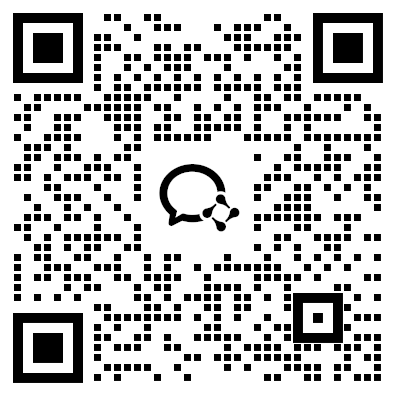
1. 打开手机微信【扫一扫】,识别上方二维码;
2.添加【美本助教】,自动领取留学备考资料大礼包。
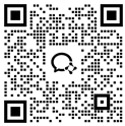
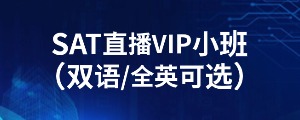 SAT直播/精讲课
SAT直播/精讲课
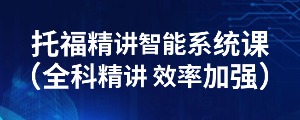 托福精讲系统课(旗舰版)
托福精讲系统课(旗舰版)
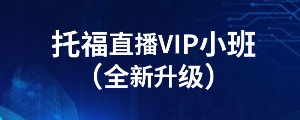 托福直播VIP小班
托福直播VIP小班
 公开讲座
公开讲座
真实了解自己的水平,为备考做好规划!
价格 : ¥0元
真实了解自己的水平,为备考做好规划!
价格 : ¥0元
真实了解自己的水平,为备考做好规划!
价格 : ¥0元

 资料下载
资料下载
添加新东方在线美本助教号
回复【美本资料】获取
添加新东方在线美本助教号
回复【美本资料】获取
添加新东方在线美本助教号
回复【美本资料】获取
添加新东方在线美本助教号
回复【美本资料】获取
添加新东方在线美本助教号
回复【美本资料】获取
添加新东方在线美本助教号
回复【美本资料】获取
添加新东方在线美本助教号
回复【美本资料】获取
添加新东方在线美本助教号
回复【美本资料】获取
关注美本留学家长帮微信订阅号
回复【美本资料】获取
添加新东方在线美本助教号
回复【美本】获取
添加新东方在线美本助教号
回复【美本资料】获取
添加新东方在线美本助教号
回复【美本资料】获取
添加新东方在线美本助教号
回复【美本资料】获取
添加新东方在线美本助教号
回复【美本资料】获取

自动领取备考资料大礼包

1. 打开手机微信【扫一扫】,识别上方二维码;
2.添加【Ella助教】,自动领取留学备考资料大礼包。
 阅读排行榜
阅读排行榜
 相关内容
相关内容